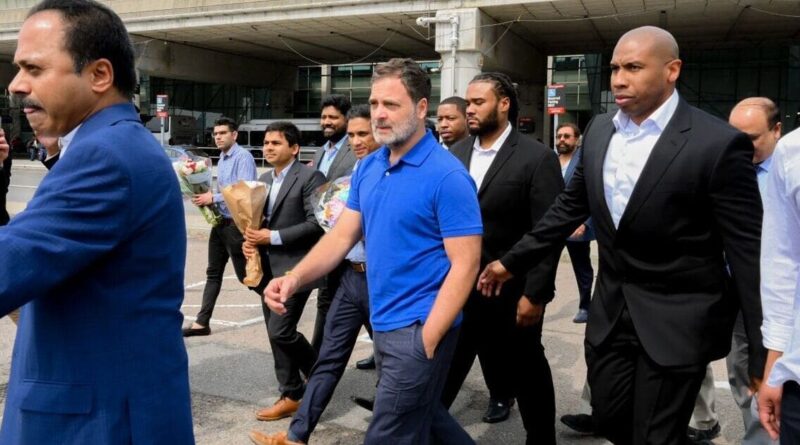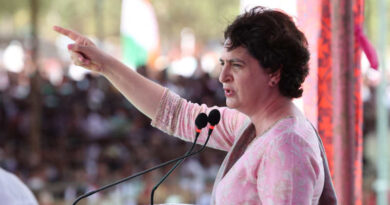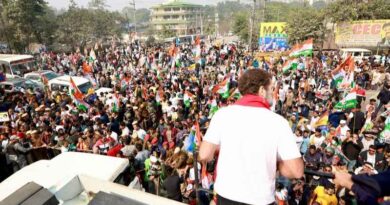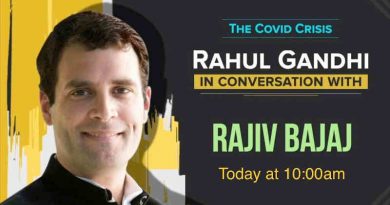Rahul Gandhi’s Failed “Vote Chori” Campaign: FAQs
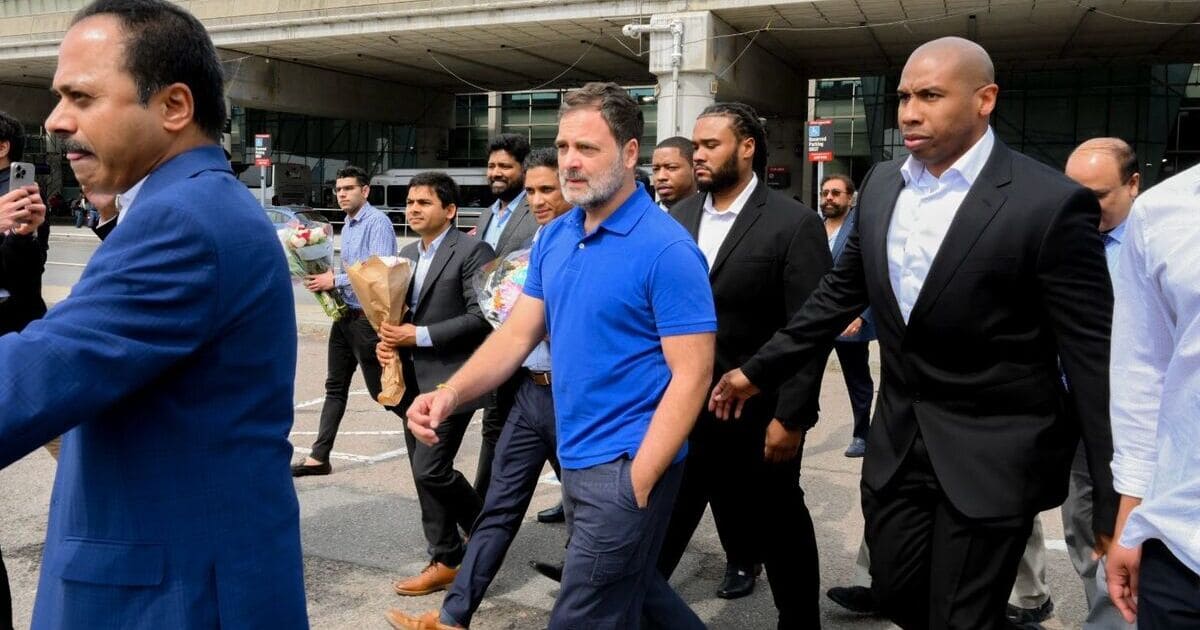
Rahul Gandhi’s Failed “Vote Chori” Campaign: FAQs
The following information is based on the article “Rahul Gandhi’s ‘Vote Chori’ Campaign: Repeating Past Patterns of Opposition Failure” published on RMN News.
Critical Questions and Answers:
- What is the “Vote Chori” campaign, and what are its main allegations?
The “Vote Chori” (vote theft) campaign, launched by the Indian Congress party on August 10, 2025, alleges large-scale electoral fraud in the 2024 Lok Sabha election. Spearheaded by Congress Leader of Opposition Rahul Gandhi, the campaign primarily claims irregularities in voter rolls, accusing the Bharatiya Janata Party (BJP) and the Election Commission of India (ECI) of collusion to manipulate election outcomes.
- How has the Election Commission of India (ECI) responded to these allegations?
The Election Commission of India (ECI) has adopted a stern stance in response to Rahul Gandhi’s allegations. The ECI has:
- Demanded that Rahul Gandhi submit a signed declaration under Rule 20(3)(b) of the Registration of Electors Rules, 1960, providing specific details of the alleged ineligible voters.
- Stated that if he fails to provide such evidence, he must “apologize to the nation.”
- Labeled Mr. Gandhi’s claims as “false and misleading” on social media platform X (formerly Twitter) via its voter education wing, ECISVEEP.
- Clarified that while voter rolls are available in PDF format, they are withheld in machine-readable form to prevent misuse, citing privacy concerns and legal precedents.
- The Chief Electoral Officer of Haryana has also issued a formal notice, directing Mr. Gandhi to provide documentary evidence within 10 days to substantiate his claims of irregularities in the state’s electoral rolls, requiring a signed declaration under oath.
- How does the “Vote Chori” campaign compare to Rahul Gandhi’s previous political initiatives?
Critics of Rahul Gandhi draw parallels between the “Vote Chori” campaign and his past political initiatives, arguing that they share a pattern of lacking sustained action or concrete results. A prominent example cited is the “chowkidar chor hai” (PM Narendra Modi as watchman of the country is a thief) campaign launched in 2019.
In this campaign, Gandhi extensively accused Prime Minister Modi of involvement in the Rafale deal corruption, alleging a theft of Rs. 30,000 crore (~ US$ 4 billion). However, after the Supreme Court closed the Rafale case, Rahul Gandhi reportedly “slept quietly at his home without intensifying his campaign.”
This pattern of launching campaigns but not sustaining them is also cited for other significant issues like the Manipur violence, farmers’ protests, women wrestlers’ sextortion by a BJP leader, Pulwama terror attack, Modi-Adani collusion in financial crimes, Pegasus spyware, and Operation Sindoor.
Critics contend that Rahul Gandhi “never sustained his campaigns against Modi and his BJP,” often only discussing them briefly on social media or in Parliament, which is described as a “defunct institution.”
- What criticisms are leveled against Rahul Gandhi’s leadership and communication strategy?
Rahul Gandhi faces significant criticism regarding his political leadership and communication strategy. Critics portray him as a “very weak politician” who makes “shallow statements without taking any concrete action to resolve the public issues.” He is characterized as a “failed opposition politician” who “operates as a news reporter or a YouTuber” rather than a “true opposition leader who can lead sustained campaigns on the streets.” This perceived ineffectiveness is partly attributed to being “surrounded by sycophant Congress leaders, pseudo activists, self-styled psephologists, and weak Congress workers.”
Furthermore, concerns are raised about the effectiveness of his communication strategy, particularly his reliance on social media platforms and “useless YouTube programs.” Critics argue that these platforms engage only a small fraction of India’s billion voters, as “nearly 80% of Indian voters are considered ‘totally illiterate'” and cannot use social media. The “real engagement on Twitter, YouTube, etc. is only a few million voters, which is like a drop in the ocean,” and “most social media users do not vote in elections.”
- What are the broader implications of the “Vote Chori” campaign for Indian politics and the opposition’s strategy?
The “Vote Chori” campaign has broader implications for Indian politics, particularly for the opposition’s strategy against the ruling BJP. The campaign has garnered support from Congress allies, including the Trinamool Congress and other members of the INDIA bloc, who are planning a “Matdata Adhikar Yatra” (Voter Rights March) in Bihar. This suggests an escalation of the Congress’s challenge to the Election Commission’s credibility ahead of Bihar’s assembly elections.
However, despite these efforts, educated observers claim that without “electronic voting machine (EVM) manipulation, electoral roll frauds, bribes to voters, threats to voters, etc.,” Modi and the BJP “cannot win even a single election” given widespread public suffering.
The current political landscape is described as lacking an “aggressive and intellectual opposition leader who can defeat Modi and BJP.” Consequently, it is suggested that with “selective electoral manipulation and collusion with ECI, Modi and BJP will keep winning elections at will and Rahul Gandhi will keep making shallow rhetoric without any favorable outcome.”
One speculative outcome is that Prime Minister Modi might “temporarily allow Congress and its allies to win the Bihar election to prove that Rahul Gandhi’s allegations were false,” potentially followed by “other malpractices such as bribing the victorious MLAs to rope them in BJP.”
- What specific examples of alleged electoral fraud does the campaign highlight?
The “Vote Chori” campaign highlights several specific examples of alleged electoral fraud to support its claims of manipulated voter rolls:
- Bangalore Central Constituency (Mahadevapura Assembly segment): The Congress claims that over 1 lakh (100,000) “fake voters” in this segment enabled the BJP to secure the Lok Sabha seat by a 32,707-vote margin. These manipulated votes are attributed to duplicate voters, invalid addresses (e.g., “House Number 0”), bulk registrations, invalid photographs, and misuse of Form 6.
- Bihar: Instances cited include 269 voters registered at a single address in Muzaffarpur and 247 at a single address in Jamui, suggesting widespread irregularities beyond Karnataka.
The campaign asserts that these types of manipulations, if replicated across 70-100 constituencies, could fundamentally undermine free and fair elections in India.
- What is the Congress party’s demand regarding voter rolls, and why does the ECI withhold machine-readable formats?
The Congress party, through its “Vote Chori” campaign, demands enhanced transparency from the Election Commission of India (ECI) in the maintenance of voter rolls. Specifically, they call for the release of machine-readable digital voter lists, arguing that this would allow people and political parties to audit them and ensure “clean voter rolls” and fair elections.
Rahul Gandhi stated, “Vote chori is an attack on the foundational idea of ‘one man, one vote’” and demanded the EC be “transparent and release digital voter rolls so that people and parties can audit them.”
However, the ECI has clarified that while voter rolls are available in PDF format, they are withheld in machine-readable form to prevent misuse. The Commission cites privacy concerns and legal precedents as reasons for not releasing voter data in a format that could be easily processed and potentially exploited.
- Who is Rakesh Raman, the author of the source material, and what is his background?
Rakesh Raman is the author of the article “Rahul Gandhi’s ‘Vote Chori’ Campaign: Repeating Past Patterns of Opposition Failure” published on RMN News. The article identifies him as a national award-winning journalist and social activist. He is also the founder of a humanitarian organization called RMN Foundation, which works in diverse areas to help disadvantaged and distressed people in society. His professional background includes being a journalist and a tech management expert, and he serves as the Managing Editor of RMN News Service.
💛 Support Independent Journalism
If you find RMN News useful, please consider supporting us.

